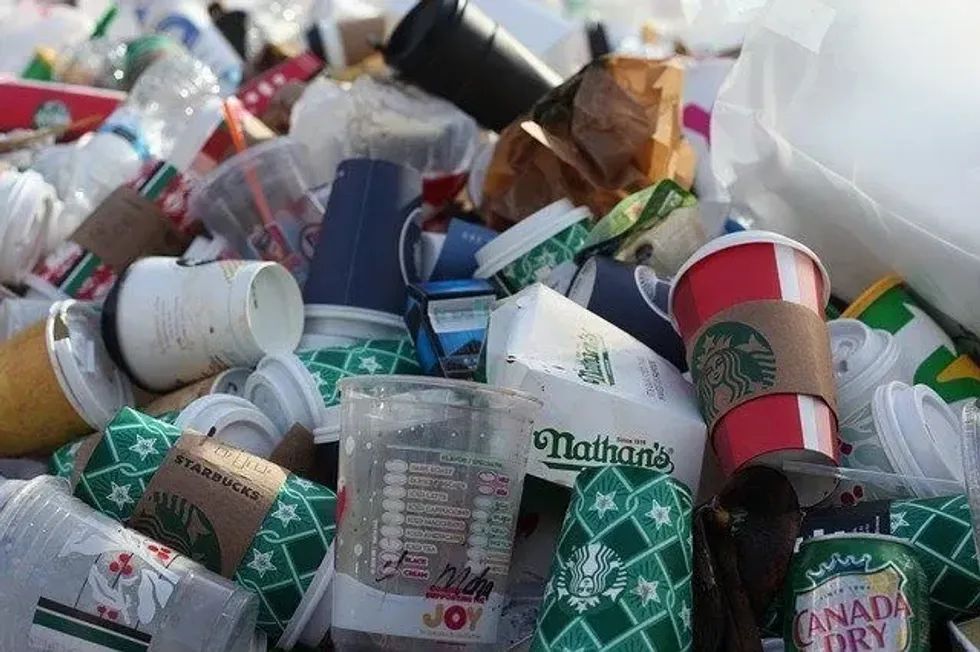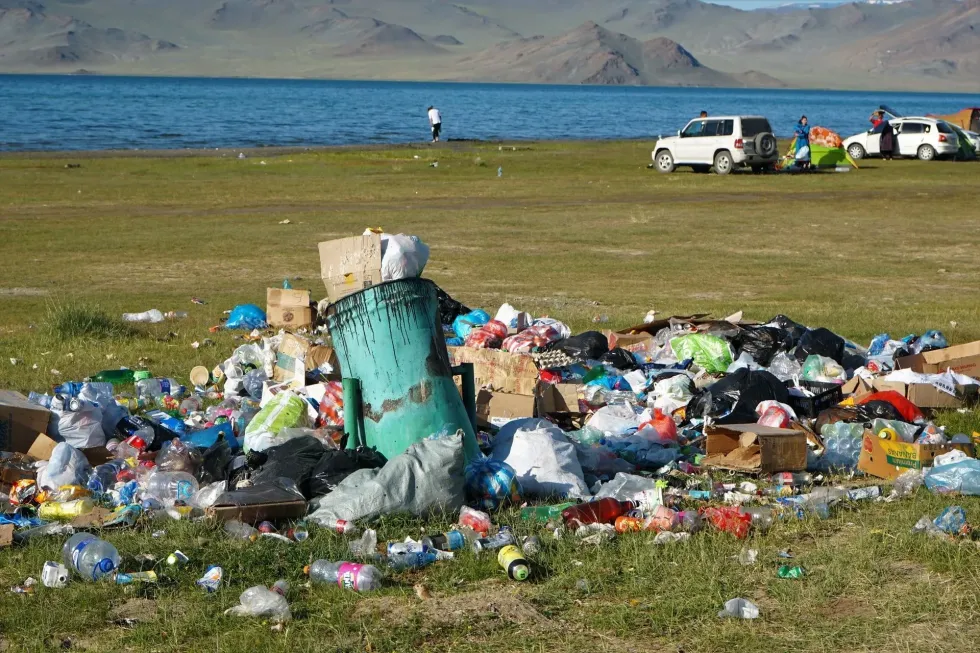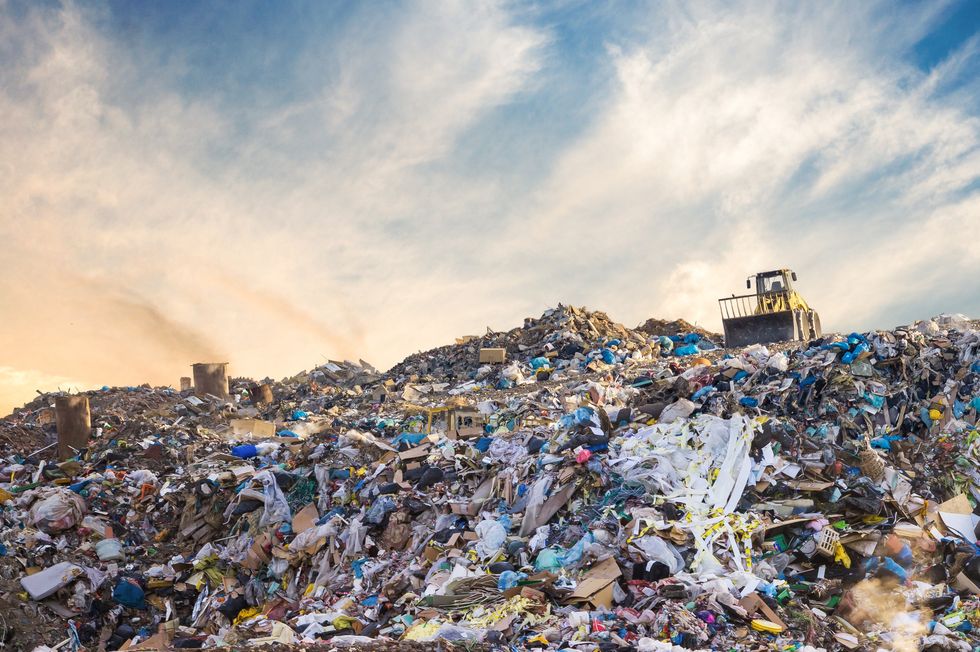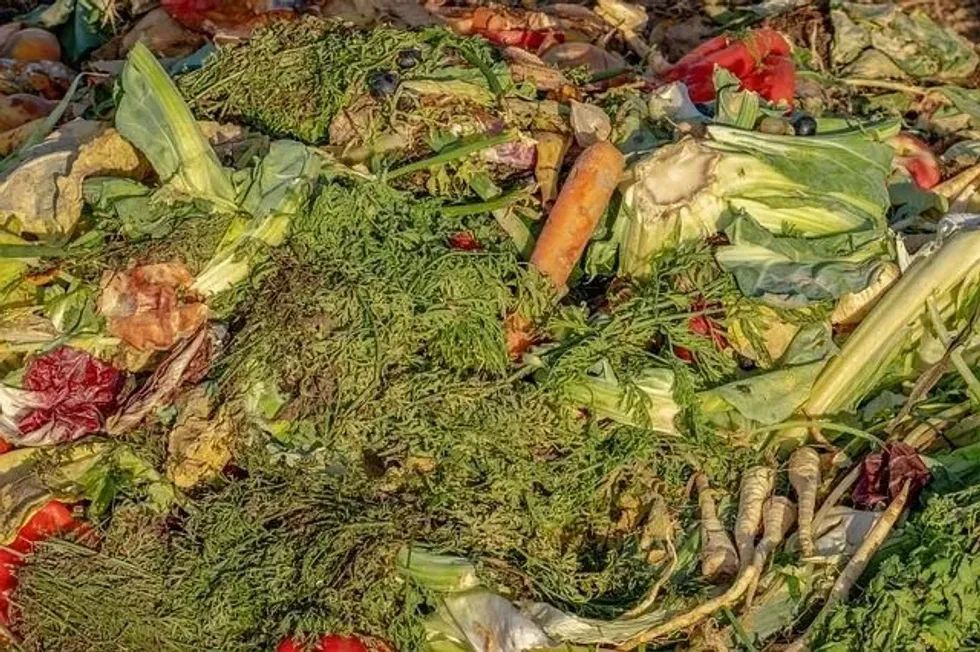Did you know that about one-third of all food produced globally goes to waste? That's a huge amount of food that could feed several millions of people. Stop Food Waste Day, observed on April 28, is focused on raising awareness about this global problem and encouraging people to consciously take action.
It is true that food waste greatly contributes to hunger and food insecurity. But that's not all; it also has a huge environmental impact. When food ends up in dumps, it breaks down and releases methane, a strong greenhouse gas that affects the climate.
By reducing food waste, you can help combat hunger and protect the planet. Everything starts with small changes in your daily life, like planning meals ahead, storing food properly, and re-making surplus food into new foods and snacks.
Where is Stop Food Waste Day celebrated?

Stop Food Waste Day is a global initiative observed worldwide. From households to restaurants, schools to businesses, people from all places come together to raise awareness about food waste and take action to reduce it.
Who is Stop Food Waste Day celebrated by?
Stop Food Waste Day is observed by individuals, families, communities, organizations, and businesses who are committed to reducing food waste. Everyone who wants to protect the environment and fight hunger can participate in this important day.
When did Stop Food Waste Day first start?
Stop Food Waste Day was first launched in 2017. Since then, it has grown into a worldwide movement, with people from all over the world joining the fight against food waste.
Who started Stop Food Waste Day?
 Shutterstock
ShutterstockStop Food Waste Day was initiated by Compass Group, a leading food service and support services company. The company recognized the need to address the global food waste issue and took action by creating this annual event.
History And Timeline
FAO Report On Food Waste
The Food and Agriculture Organization (FAO) of the United Nations published a report revealing that about one-third of all food produced globally is wasted.
2011
Launch Of Think.Eat.Save Campaign
The UN Environment Programme (UNEP) and the Food and Agriculture Organization (FAO) launched the Think.Eat.Save campaign to increase public awareness of food waste and motivate people to take action to reduce it.
2013
UN Sustainable Development Goals
The United Nations adopted the Sustainable Development Goals, which include a target to halve global food waste by 2030.
2015
Stop Food Waste Day
Compass Group launched the first Stop Food Waste Day to raise awareness about the global food waste issue and encourage people to take action.
2017
Say No To Food Wastage
A resolution was passed in the UN General Assembly declaring September 29 as the International Day of Awareness of Food Loss and Waste (IDAFLW).
2019
Look, Smell, Taste, Don't Waste Campaign
The Best Before Date Campaign was launched in the UK to help consumers understand the difference between 'best before' and 'use by' dates, reducing unnecessary food waste.
2019
Honoring Fruits And Vegetables
The Food and Agriculture Organization of the United Nations declares 2021 the International Year of Fruits and Vegetables to celebrate farm produce.
2021
Traditions And Customs
On Stop Food Waste Day, people around the world combine efforts to raise awareness about the global food waste issue and take action to reduce waste.
One way people observe Stop Food Waste Day is by pledging to reduce food waste at home. This can be done by planning meals ahead, storing food properly, and turning extra food into new meals or snacks.
Another tradition is participating in food waste reduction challenges, such as the Zero Waste Challenge. In this challenge, participants aim to produce no food waste for a set period, such as a week or a month, by being mindful of their food consumption and waste.
Organizing community events is also a popular way to celebrate Stop Food Waste Day. These events can include food waste awareness workshops, cooking classes that teach people how to use up leftover ingredients, and surplus food donation drives to collect and redistribute excess food to those in need.
Sharing tips and tricks for reducing food waste on social media using the hashtag #StopFoodWasteDay is a great way to spread awareness and encourage others to join the fight against food waste.
Ways To Observe Stop Food Waste Day

Observe Stop Food Waste Day by taking the pledge to end wasting food. Encourage friends and family to join the initiative and be conscious of not wasting food.
Learn more about what happens to the environment after wasting food and spread the word within your local community.
Plan your meals ahead of time and make a shopping list to avoid overbuying ingredients. This simple step can go a long way toward reducing food waste at home.
Find out the best way to store food to make it last longer. For example, store vegetables like carrots and celery in water to keep them fresh longer.
Practice mindful shopping by writing down what you want to buy, avoiding impulse buys, and understanding those 'use by' and 'best before' dates.
You can also donate to projects and programs that work towards providing edible food to those faced with hunger.
Stop Food Waste Day Facts And Stats
- About one-third of the food produced across the world goes to waste, amounting to about 1.3 billion tons per year.
- The United Nations Food and Agriculture Organization (FAO) estimates that the global cost of food waste is about $2.6 trillion per year.
- According to the United Nations Environment Programme (UNEP), if global food waste were a country, it would be the third-largest greenhouse gas-releasing country after the United States and China.
- Just a quarter of the food wasted globally could feed the 795 million people who go to bed hungry each night.
- Fruits and vegetables produced globally have the highest waste rates of any food.
- Reducing food waste by just 25% would be enough to feed all the people who are malnourished in the world.
- In the European Union, around 153 million tonnes of food waste are generated annually.
- A 2021 UN report found that 931 million tons of food sold to households, restaurants, retailers, and other food services were wasted in the year 2019. This is 17% of all food available at the consumer level going to waste.
- A significant amount of food waste happens in the supply chain due to spoilage during transportation and storage.
- Another similar event called the International Day of Awareness of Food Loss and Waste is held by the United Nations on September 29 annually.
FAQs
What are the primary reasons behind food waste?
Food waste can happen for many reasons, such as buying too much, not planning meals well, not understanding label dates, and not storing food optimally.
Cooking too much food and overestimating how much a person will eat also contribute to waste. Cosmetic standards about how fruits and vegetables should look also make people throw them away, even though they are eatable.
How can individuals minimize food waste in their households?
To fight food waste at home, start by planning your meals and creating a shopping list to make sure you don't buy too much. Store food properly to make it last longer. Also, get creative and repurpose food into new meals and snacks.
What are the ways to deal with excess food?
If you have extra food, you could give it to food banks, shelters, or community groups in your area so they can give it to people who need it.
Another option is to compost food scraps, which reduces your waste and also makes nutrients available for your garden soil. Sharing extra food with friends, family, or neighbors is also a great way to prevent it from going to waste.
What environmental impact does food waste have?
Food waste has a huge effect on the earth. Food that ends up in dumps breaks down and gives off methane, a strong greenhouse gas that makes climate change very bad. The resources used to produce, process, and transport food, such as water, energy, and land, are also wasted when food is thrown away.
How can you use up leftover food creatively?
A great way to save money and cut down on food waste is to get creative with leftovers. You can make soups, stews, or casseroles from leftover meats and veggies.
That old bread can be used to make French toast, croutons, or breadcrumbs. Fruits that are too ripe can be turned into smoothies, jams, or baked goods like pies and muffins.
What are some effective ways to store food to extend its shelf life?
For less food waste, it's important to store food properly. Dry foods like cereal, pasta, and rice should be kept in cool, dry places in containers that keep air out. Store foods that go bad quickly, like meat, cheese, and fruits and vegetables, in the fridge or freezer.
Use sealed containers or bags to keep air out and prevent moisture from spoiling food. Mark and date the food you store so you know when it needs to be used.
How can businesses and restaurants reduce food waste?
Businesses and restaurants can reduce food waste by doing waste checks to find ways to make things better. Using 'first-in, first-out' (FIFO) methods and better inventory management tools can help keep food from going bad.
You can also cut down on waste by giving customers smaller portions and letting them customize their orders. Working together with nearby food banks or composting sites to recycle or give extra food is another good idea.
What role can governments and policymakers play in addressing food waste?
Governments and lawmakers can reduce food waste through laws, incentives, and education. Setting goals to reduce food waste and requiring businesses to report waste are two ways to hold them responsible.
Giving tax breaks for food gifts and building up facilities for compost-making are two ways to get people to throw away less trash. Education campaigns can make people more aware and encourage them to change how they act.
How can schools and educational institutions reduce food waste?
Implementing 'offer versus serve' rules in schools and other educational institutions can help cut down on food waste. This rule allows students to choose what they want, reducing the amount of food that remains on trays after meals.
Auditing food waste and setting goals for lowering it can help keep track of progress in schools. A culture of sustainability can be created by teaching kids about food waste and getting them involved in ways to cut it down, like composting or food recovery programs.
Follow On Social Media
Twitter Hashtag: #StopFoodWasteDay #FightFoodWaste
Instagram Hashtag: #StopFoodWasteDay #ReduceFoodWaste
When is this day celebrated?
04/24/2024, Wednesday
04/30/2025, Wednesday
04/29/2026, Wednesday
04/28/2027, Wednesday
04/26/2028, Wednesday
Related Articles Around the Web





 Shutterstock
Shutterstock





